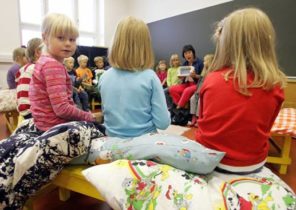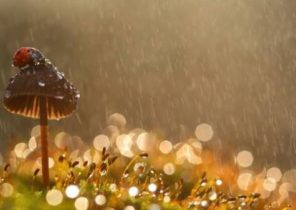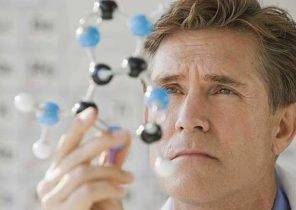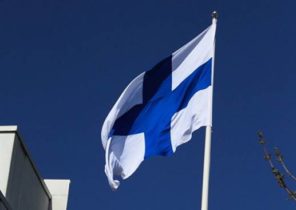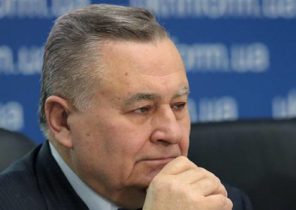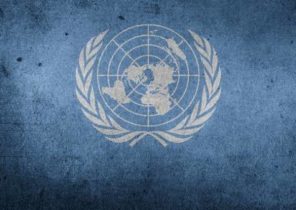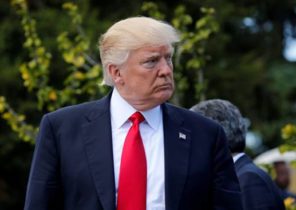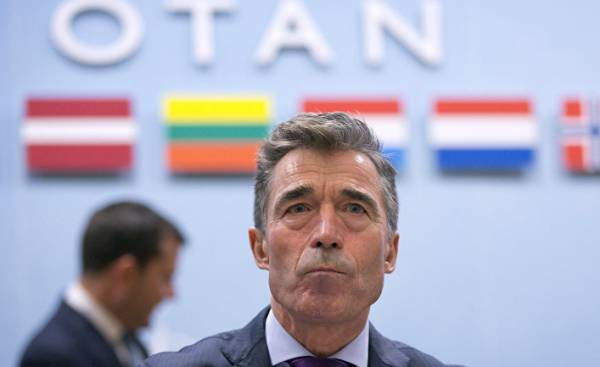
Interview with Anders Fogh Rasmussen (Anders Fogh Rasmussen) — former Prime Minister of Denmark and NATO Secretary General in 2009-2014.
— Rzeczpospolita In 2002, when You were Prime Minister, and Denmark presided over the EU, it was decided to scale the enlargement of the European community. It took ten States, including Poland. Now many countries of old Europe are harshly criticized our country. EU enlargement and the invitation of Poland was a mistake?
— Anders Fogh Rasmussen: On The Contrary. It was the right decision in a right moment. Due to the expansion of the EU and the earlier inclusion of new members (including Poland) in NATO, we had implemented our project to create a new Europe, whole, free, peaceful. If we had not taken it then and continued to wait, perhaps we would have never made: Russia could take over the opponents of the expansion.
— Vladimir Putin was not at that moment strong enough?
— I would rather be told that then he held the Pro-Western stance. By 2005 — after the Georgian “revolution of roses” and “orange revolution” in Ukraine, his opinion began to change.
— At the official level, Moscow objected only against NATO enlargement.
Now Putin just took an anti-Western stance. Before he really focused on the Alliance. But it was not a real enemy of Russia, because it is never threatened. No his cock did not even think about the attack on her. Putin sought the enemy to strengthen its position in the country.
— How do You respond to allegations that Poland and Hungary were not Mature enough in terms of European values countries to become EU members, but it became clear today?
— I don’t agree with it. First, my experience tells me that, for example, the new NATO members rarely pose a problem. Rather, they help to find their solution. In the European Union in my time was the same. Secondly, I understand that you mean the claims of the European Commission to the internal politics of Poland and Hungary. You may recall that in 2000, the criticism faced Austria, so it happens not only with new members. I think the EU should be careful with criticism of domestic politics. Of course, everyone should adhere to democratic standards, the rule of law, but the European Commission should do in the first place a solution to the problems of Europe, not to criticize the domestic situation in individual countries.
— Where is the line between non-interference in the internal Affairs of, and care for the preservation of the values?
— Here you need to find a balance, but in the first place the EU should be ambitious goals. Of course, when a state does not adhere to the principles on which was built the European Union, this question should be raised, but it seems to me, history has shown that it does not bring much fruit.
— So, large-scale expansion of the EU, which was adopted in December 2002 in Copenhagen has not brought You disappointment?
— I am very glad that it happened.
You say so because we are talking to You in Poland?
— I say this everywhere. I ask, could this extension to provoke Russia? I always answer the same: no. Poland and other countries aspired to become members of NATO and then EU. Every state has the right to decide with whom it wants to cooperate. This decision is not made by Putin.
With the big expansion it was not so simple. Some countries opposed, there were ideas that should be taken at first, only three countries without Poland. Who criticized a large expansion, the arguments put forward criticism?
— I can say that Denmark have always advocated to accept all candidates for membership. From today’s perspective, we see that this was true. I remember that in the 1990s were not included in the first wave of enlargement in the Baltic countries. In the end, we still decided to accept all. Was the idea to divide the candidates for group leaders and those lagging behind. In 1992 appeared the so-called Copenhagen criteria, correspond to which were candidates for membership. Those countries that did not meet this criteria, worked hard to rectify the situation, the reform process accelerated. We were not going to abandon the conditions, but candidates managed to comply with them. This shows that the prospect of membership launches certain processes associated with democratization, and with the economy.
The idea of further EU enlargement to the East does not enjoy support. I am referring here to Ukraine, where You become the Advisor to the President. Ukraine’s accession to the EU is a fiction?
— All depends on how the Ukrainians are ready to carry out reforms. I think every country, including Ukraine, has the right to decide whether she wants to apply for membership. We deny no one can. If some country (Ukraine or Georgia) decides to apply for membership, we should say: okay, start the process. After that you should start negotiations on individual items. In the end, it will be possible to make a decision. Obviously to say that Ukraine or some other state may not become a member of the EU, is impossible.
— Former French Finance Minister and European Commissioner Pierre Moscovici (Pierre Moscovici) said that to begin to discuss the membership of Ukraine will be possible only through some tens years.
But even he did not rule out such a prospect is most important. The sooner Kiev will be engaged in reforms, the faster the scenario will become real. I mean here, in particular, the problem of corruption. Ukrainians already made important steps, but more still to come.
— Ukraine is a country with a low standard of living and the smallest wages in Europe. For membership in the EU can expect, perhaps only future generations of Ukrainians. You gave President Petro Poroshenko advice on how to revive the hope of young Ukrainians?
— Firstly, Ukraine has lagged behind due to the fact that it is not engaged in reforms. At the end of the cold war, Poland and Ukraine were roughly on the same level, now the economic potential of the Polish state higher than the potential of the Ukrainian four times. The Ukrainians lost a lot of time, but in three years they were able to carry out more reforms than in the last quarter of a century. Take a look at the Baltic States. During the Second world war they were illegally annexed to the Soviet Union, more than four decades, they were in its composition. If you’d asked me in the 1960s, if I believe that they will gain independence, and then become members of the EU and NATO, I would answer that doubt. The same situation with Ukraine.
— I ask You, former Secretary-General of NATO, the question about the prospects of Ukraine’s membership in the Alliance? You discussed it with Poroshenko?
— We talked about this. I think, in Kiev decided that this is now not the most important theme, and while it should save without taking any decisions. This is the right approach. I’m sure if you ask the Ukrainians, the vast majority will vote for membership. But now the most reasonable — not to raise the noise around it, and gradually carry out reforms so that the country could meet the necessary criteria.
— Do Poroshenko time to think about such major issues? Perhaps he will have time to only deal with more local matters, and his term will come to an end.
Presidential elections are due in 2019. I did not ask Poroshenko, if he was going to participate, but I hope so. Then he gets another five years.
His chances for reelection, perhaps, not too great.
— Who could be an alternative candidate?
— I don’t know, but the popularity of current Ukrainian politicians is not great.
— Poroshenko has held many unpopular reforms, it is difficult to expect that everybody’s going to support it. But on election day people will have to weigh whether to make a bet on the President, whom they know and who have established good relations with the West, or to decide on the next experiment.
— What do You think, will Vladimir Putin on the new aggressive step? Will he check the work of the Fifth article of the Washington Treaty, which States that NATO is obliged to protect his member that was attacked? About this term said, for example, Mikhail Kasyanov, a former Russian Prime Minister who became the leader of the opposition. He believes that such a test Russia could make Estonia.
Next year in Russia’s presidential elections, so I wouldn’t be surprised if Putin will strengthen nationalist rhetoric and may take some military steps to strengthen its position in the country. But I don’t think he’ll decide to see how the Fifth article, because he knows that in this case it is waiting for the immediate response of the Alliance.
— Are you sure? President trump during a mini-summit of NATO in Brussels did not mention the Fifth article, although it waited.
He’d to mention, it is a pity that he did not. But I think that if the world, Europe will be in danger of Russian attack on one of the NATO members, the allies, including the US, immediately is the answer. Otherwise, the Alliance will crumble.
The reaction may be not fast enough. Until gather the ambassadors of the member countries until they make a decision until the troops arrive, will be too late.
— It might take some time, but on the Eastern flank came the battalions and immediate response forces that are able to begin deployment within a few hours. If Russia decides to arrange a test, of course she can do it, but it would end in a confrontation with the Alliance, including the United States. Such battle Putin will lose.
— Maybe America will be so busy with the possibility of impeachment trump, that it will not have time to perform obligations related to the Fifth article?
— With the support of their people in charge of security, the President decides. I am sure that this will happen immediately.
— You led NATO a year after the war with Georgia. Do You think many members of the Alliance did not understand that Russia is a regional real danger?
— You are right. We, including me, have underestimated Putin. If we knew then what we know now, we’d have to take a more assertive stance. When in August 2009 I became General Secretary I was engaged in the development of strategic partnership with Russia. We started this a year after its attack on Georgia, hoping it was just an episode, and we can stop with Moscow partner relations. Let me remind you that the presidency was won by Dmitry Medvedev, he seemed a little more focused on the West. At the summit NATO-Russia in 2010, we decided to develop a strategic partnership. We believed the Russians partners until February 2014 before they attacked the Ukraine.
— Do you understand what is the true guise to Russia when it annexed the Crimea?
— So. Since the end of the cold war and up until February of 2014, we believe that Russia is our partner. Because of this, we have gathered what is called the “peace dividend” and reduced spending on armaments. Now Putin has created an entirely new situation, and we have to increase them.
